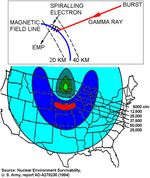Silver Lifetime
- Messages
- 42,692
- Reactions
- 110,841
If you kept your $ out of REITs (as much as possible) then you could mitigate that impact, although there were a lot of ripples.2008 showed us something we should have learned in 1929, that if you let bankers bet other people's money they will bet until we're all broke.
Also, not paying more for your house/property than it was worth, and not taking out a mortgage (and second and third mortgage, and equity loan) on your house, and not buying a second (or event third house) and not buying multiple houses to flip - that helped.
Yeah - I got hit in 2008 - I got laid off, and my 401K was hit. But I found another job, and my 401K came back about a year later, and two years later it doubled in value. My main saving grace was that I did not buy a house at the peak of the bubble - I tried, but I got laid off before I could find the house I wanted. Instead, in 2012 I bought the property I now own (65% equity) that is probably valued double what I paid for it (waiting for an appraisal).














